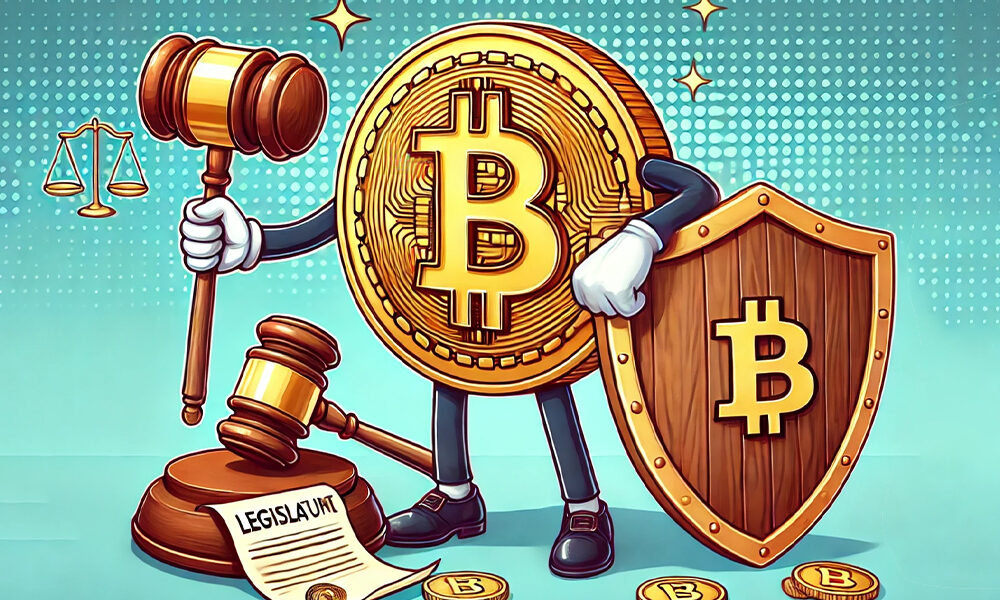Regulation
Louisiana protects crypto and rejects CBDC

In a landmark legislative move, the state of Louisiana has amended its laws to ban central bank digital currencies (CBDCs) while establishing strict regulations for digital asset miners and node operators.
These new provisions, integrated into the Blockchain Basics Act, are expected to come into force in August 2024.
Regulations on Foreign Ownership and Operation of Nodes
The law specifically prohibits any state involvement in testing, accepting or requiring payments made with CBDCs, although it does not extend these prohibitions to other digital currencies. The legislation, formalized as House Bill 488, received bipartisan support in both the Louisiana House and Senate.
Led by Representative Mark Wright with the support of Senator Jean-Paul Coussan, the bill aims to secure continued access to cryptocurrencies like Bitcoinwhile explicitly limiting the use of CBDCs within the state.
MASSIVE RUPTURE: Bill to defend’#Bitcoin The rights and prohibition of CBDCs are enacted into law.
🚨Satoshi Action adopts the 4th law to defend #Bitcoin Rights in the USA.🚨
Louisiana joins Oklahoma, Montana and Arkansas in establishing programs.#Bitcoin political plan for the nation. 🇺🇸 pic.twitter.com/8NGaMtcW1U
– Dennis Porter (@Dennis_Porter_) June 24, 2024
Further tightening its regulatory framework, Louisiana has also implemented strict controls on foreign ownership in the digital asset mining sector. Under the new law, foreign entities are prohibited from acquiring or retaining interests in digital asset mining operations statewide.
This regulation will come into force on August 1, 2024 and allows one year for foreign-controlled companies currently engaged in mining activities to completely divest their interests.
Failure to comply with these rules could result in severe penalties, including fines of up to $1 million or 25% of the foreign entity’s ownership interest in the mining operation. The revised legislation also sheds light on the role and definition of node operators within blockchain networks.
Node operators, recognized as computing devices that communicate with other devices to maintain consensus and integrity of the blockchain, play a critical role in the creation and validation of transaction blocks.
However, the law specifies that these operators do not have the power to modify or decide on the results of transactions initiated by users.
The national debate on CBDCs
The issue of the U.S. digital dollar has become a controversial topic not only in state legislatures, but also on the national political stage. Like Louisiana, other states, including Florida and North Carolina, have passed laws to restrict or outright ban the use of CBDCs.
This legislative trend reflects broader national skepticism and caution about the potential implications of central bank-managed digital currencies.
The conversation around CBDCs has also permeated the US presidential campaign. Former President Donald Trump has expressed a strong stance against CBDCs, suggesting that they represent a form of government overreach and could potentially strengthen the government’s surveillance capabilities.
The bill will come into force in August 2024
In a January speech during his campaign, Trump underscored his opposition by declaring that he would “never authorize the creation of a central bank digital currency,” arguing that it would give the government “absolute control” over financial assets of citizens. .
On the other hand, the current administration of President Joe Biden seems more open to exploring the possibilities that CBDCs could offer.
However, this position has been met with legislative resistance from several senators who advocate for banning the introduction of a digital dollar in the United States, highlighting the deep divisions on this issue.
Global developments and implications
Internationally, the development of CBDCs is gaining traction, with at least 110 countries actively exploring or developing their own digital currencies.
Of these, 39 have reached more mature stages, including pilot programs or full launches, indicating growing global interest in integrating digital currencies into financial systems.
As the debate over digital currencies continues to evolve, both in the United States and around the world, actions taken by states like Louisiana could significantly influence the future landscape of digital financial transactions and the government’s role in managing new forms of money.
